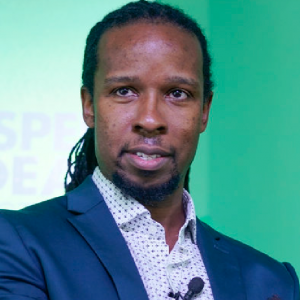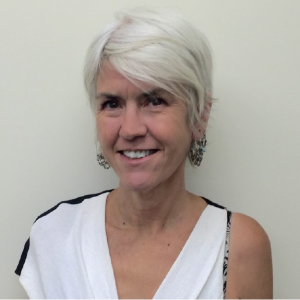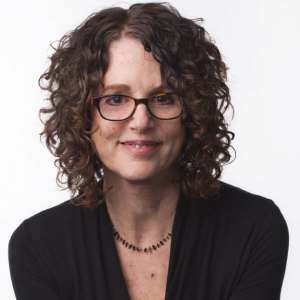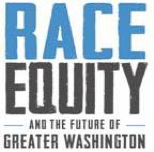
Despite continued economic growth in the Capital Region, the rise of inequality persists – making it difficult for many communities to realize their full potential. As we know it today, racism is a far cry from the imagery of slavery and the civil rights movement. A more subtle discrimination exists, often historically embedded in our institutions and sometimes presenting in biases of which we are unaware. Further, race-based pre-conceptions and actions, whether conscious or unconscious, can shape the effectiveness of our work to provide affordable housing and critical programs to communities across the Capital Region. HAND is committed to reaching beyond the symptoms of inequity to address the root causes that amplify housing disparities and restrict access to opportunity for communities of color.
The systems and customs that underpin our country have worked fine for many. But for others – people of color in particular – embedded structural racism and unconscious bias, regularly reinforced, has created an alternate reality. We must be willing to reconstruct our beliefs on race in order to successfully navigate the tangled web of systematic racism. We are overwhelmed by the lingering effects of red lining’s legacy, the countless white papers warning of the stark disparities among us, and the embedded inequities in the very blue prints of the laws and policies that govern us. HAND’s intention in curating Red Lines, White Papers, & Blue Prints: A Four-Part Learning Series Exploring the Dimensions of Racism and Strategies Towards Racial Equity is to give participants the time, space and place needed to process this subject matter, while thinking critically on how racial equity can be operationalized within their respective organizations and communities.
What are the series dates?
Over the course of four months (March 2020 – June 2020), participants will work as a cohort with partners to explore key elements of racism and strategies for creating paths toward racial equity. The series is designed to be cumulative, with each session featuring a presentation by a nationally-recognized expert, followed by an in-depth, facilitated conversation with attendees.
Who Can Attend?
HAND members, partners and allies –whether you are a real estate developer, service provider, banker, architect, government employee, or just want to learn, ALL are welcome.
Why Attend?
These courses seek to foster learning and understanding. HAND members are on the ground every day working to create thriving communities across the Capital Region. As important as this work is, it will never reach its full potential if we don’t grasp the role of race in the equation. Systemic racism spanning decades has caused deep disparities throughout the communities we serve today – gaps in education, wealth building and importantly, access to affordable housing. We must be intentional in ensuring equitable outcomes for all, specifically communities of color who are disproportionately impacted by these challenges.

Registration Information: Thank you to all who registered for HAND’s Racial Equity Learning Series. Registration is NOW CLOSED! We are excited to create space and place for this cohort of 100+ HAND members working collectively across the Washington region to confront and advance issues of racial equity.
To be added to the waitlist please contact EKim@handhousing.org.

 Ibram X. Kendi, Author
Ibram X. Kendi, Author
How to Be an Antiracist
March 5th, 9 am – 12 pm,
Center for Total Health Kaiser Permanente
700 2nd St, NE Washington, DC 20002
This first session of the series, Structural Racism, was designed to develop the capacity of participants to better understand racism in its institutional and structural forms. Moving away from a focus on personal bigotry and bias, Kendi presented a historical, cultural, and structural analysis of racism. With shared language and a clearer understanding of how institutions and systems are producing unjust and inequitable outcomes, participants left the training better equipped to begin to work for change and further exploration throughout the series.
Thank you to our session sponsors, Kaiser Permanente and Wells Fargo!


Julie Nelson, Director
Government Alliance on Race & Equity, Haas Institute for a Fair and Inclusive Society
April 1st, 9 am – 12 pm
Implicit bias is a concept based on an emerging body of cognitive research which identifies ways in which unconscious patterns people inevitably develop in their brains to organize information actually affect individuals’ attitudes and actions, thus creating real-world implications, even though individuals may not even be aware that those biases exist within themselves. Years of exposure to structural and cultural racialization and privilege have embedded stereotypes and biases in individual psyches and the broader culture. Due to the link between cultural stereotypes and narratives, and systemic policies, practices and behaviors, implicit bias is one part of the system of inequity that serves to justify inequitable polices, practices and behavior. Nelson integrated the Implicit Association Test into her presentation and highlighted the ways in which bias and racism play out at the individual, institutional, and structural levels.
Thank you to our session sponsor, DC Housing Finance Agency!


Robin DiAngelo, Ph.D., Author
What Does it Mean to be White?
May 4th, 12 pm – 3 pm
Most of our current laws, regulations, policies and practices in areas like housing, health-care, education and law enforcement were established, or justified, in part because of assumptions about what is normal, appropriate or desirable. These assumptions tend to reflect dominant cultural narratives or norms – for example, what constitutes a “family,” who is dangerous, which groups are deserving of societal support and which are not, etc. Over time, the consequence of laws, regulations, policies and practices is a multigenerational system of inequity. This system reinforces stereotypes and access to organizational and system power. When these assumptions are codified into laws, system policies and organizational and community practices, they are part of what creates persistent advantages for some groups and persistent disadvantages for others.

 June 3rd, 9am-1pm
June 3rd, 9am-1pm
HAND will provide webcast access information directly to those registered.
The fourth and final installment of the series is designed to serve as a turning point for the cohort, in which participants will move from a place of learning to action. Cohort members will have an opportunity to consider the foundation that our featured speakers laid in the first three programs: Structural Racism, Implicit Bias and White Privilege. Most importantly, participants will explore what it means to operationalize racial equity in the context of affordable housing and community development. The goal of this session is to support members with:
- Reflection on key takeaways from the first three sessions;
- Understanding the role of individuals in the system of racial inequity;
- Owning the learned challenges and opportunities pertaining to racial equity;
- Articulating a vision for an equitable future;
- and preparation to operationalize that vision.
Cohort members will have an opportunity to think about their own line of work and how systems within the industry exacerbate disparities. By the end of the session participants will be equipped with the tools to clearly define specific issues and apply effective solutions that move the needle toward equitable outcomes.
|
Registration Information: Thank you to all who registered for HAND’s Racial Equity Learning Series. Registration is NOW CLOSED! We are excited to create space and place for this cohort of 100+ HAND members working collectively across the Washington region to confront and advance issues of racial equity. |


At the culmination of the series, HAND is excited to welcome its members and partners to attend Race, Equity & the Future of Greater Washington Regional Summit on September 18, 2020. We’re partnering with Washington Regional Association of Grantmakers, Bridges Across the River, Center for Nonprofit Advancement, Greater Washington Community Foundation, Leadership Greater Washington, Metropolitan Washington Council of Governments, and the United Way of the National Capital Region to host the first of its kind summit designed to organize a regional action agenda to advance racial equity. Check out the activation page to learn more.




